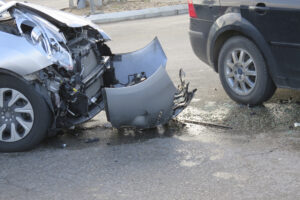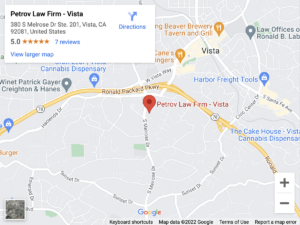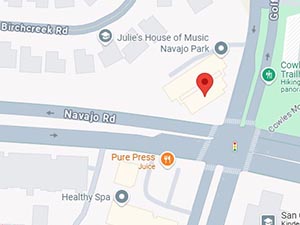
Yes, you can receive reimbursement for lost wages after a car accident if the accident was the other driver’s fault. California law treats lost wages as economic damages. The term “lost wages” generally refers to past lost wages. You can also demand reimbursement for “diminished earning capacity” or anticipated future earning capacity arising from long-term disability.
How Much Is a Lost Wages Claim Worth?
Here are four possible components of a lost wages reimbursement claim:
- Wages that you lost while you were in the hospital;
- Wages that you lost while at home recovering from your injury;
- Wages that you lost because of medical treatment (taking the afternoon off for a doctor’s appointment, for example); and
- An amount that represents used-up sick leave and vacation time since these days will no longer be available for you to use if you need them.
This analysis can get more complicated than you imagine if your work hours are unstable.
How Do You Prove Lost Earnings?
For the average full-time worker, proving lost earnings can mean asking your employer to confirm your lost wages in writing. Such a letter might break down your lost earnings into the four components listed above. The value of your vacation time and sick leave should equal the amount you would have earned if you worked those days.
If you took sick leave during a busy season when you probably would have worked overtime, your employer would need to factor that in. Another convincing item of evidence is a signed employment agreement that includes the amount of your wages.
What if I Am Self-Employed?
If you are self-employed, you might calculate your annual income, break it down into a daily sum, and then multiply it by the number of work days you missed. The following evidence might help you establish your claim.
- Recent income tax returns;
- Invoices;
- Evidence of payments received; and
- Printouts of correspondence that proves how many assignments you had to cancel.
In most cases, you cannot win reimbursement for lost financial opportunities.
Diminished Earning Capacity Claims for Long-Term Injuries
If your injuries are severe enough, you might never be able to work again. Alternatively, you might have to switch to a lower-paying job. This loss is known as “diminished earning capacity.”
The problem with calculating and proving diminished earning capacity is that you need to estimate your future earnings, sometimes decades into the future.
You will need the help of at least two people to accomplish this: an experienced personal injury lawyer and an expert witness. You must accurately calculate your future lost earnings to know how much compensation to demand. If you ask for too little and run out of money ten years later, you will not be able to ask for more money.
How California’s Car Accident Compensation System Works
California is an “at-fault” auto insurance state. If the other driver is at fault, you can file a third-party claim against their auto liability insurance policy. If you cannot obtain reimbursement for all of your losses this way, you can sue the at-fault driver in a California court.
Mandatory Minimum Auto Insurance Coverage
If you file a claim against the at-fault driver’s insurance company, will the at-fault driver’s insurance coverage be sufficient to cover your claim? Although the answer to that question depends on the size of your claim, California’s mandatory minimum auto insurance coverage amounts to:
- $15,000 in bodily injury liability insurance per person and $30,000 per accident (shared among more than one victim). You would claim reimbursement for lost wages and medical expenses from this amount.
- $5,000 in property damage liability insurance.
One potential problem you might face is that over 15% of California drivers violate the law by carrying no auto insurance. To guard against liability in this situation, you should purchase uninsured motorist insurance (UIM) to cover your losses, including lost wages, in case an uninsured driver hurts you in an accident. California does not require drivers to purchase UIM.
Well-Insured Motorists
Certain motorists must carry far more insurance than ordinary drivers do. Commercial truck drivers, for example, carry far more insurance than the average motorist does—probably more than enough to cover your claim. Uber and Lyft drivers are also very well-insured if they were on duty at the time of the accident.
Filing a Lawsuit
If the at-fault driver is uninsured or the insurance company (yours or the at-fault driver’s) refuses to pay your claim, you can file a lawsuit for all of your losses, including lost wages. If you win, your compensation will come from the at-fault driver’s insurance company or their personal assets.
California’s “Pure Comparative Negligence System”
In most accidents, drivers share fault even though one driver might be much more at fault than the other. Under California’s pure comparative negligence system, a court will apportion fault on a percentage basis (10% your fault, 90% the other driver’s fault, for example).
Each of you will lose the percentage of your damages that corresponds to your percentage of fault. In the preceding scenario, for example, you would lose 10% of your damages and have to pay 10% of the other driver’s damages (if any).
Special Case #1: Workers’ Compensation Claims
Most workplace accidents fall under the jurisdiction of the California workers’ compensation system. Your lawyer might be able to find a loophole that could allow you to sue a third party for your injuries. However, if workers’ compensation applies to your claim, you cannot file a lawsuit against your employer.
Instead, you must file an administrative claim with the California workers’ compensation system. You do not have to prove that your employer was at fault to qualify for lost wages compensation. Nevertheless, you will probably be eligible to receive only two-thirds of your average weekly wages.
Special Case #2: Wrongful Death Claims
After a fatal accident, certain close family members and financial dependents can file a wrongful death lawsuit. Courts do not award wrongful death compensation for lost wages. However, they do award compensation for financial support lost by the claimants. This support would likely have come from the deceased victim’s wages.
A Skilled Personal Injury Lawyer Can Multiply Your Compensation
No ethical lawyer will offer you a guarantee of how much you will recover in a personal injury lawsuit. Nevertheless, the Insurance Research Council estimates that injury victims who hire car accident lawyers receive an average of 3.5 times as much overall compensation as unrepresented claimants.
Contact Petrov Personal Injury Lawyers to schedule a free case consultation with an experienced car accident attorney in Vista by filling out our online contact form or calling our office 24/7 at (619) 344-0360.


